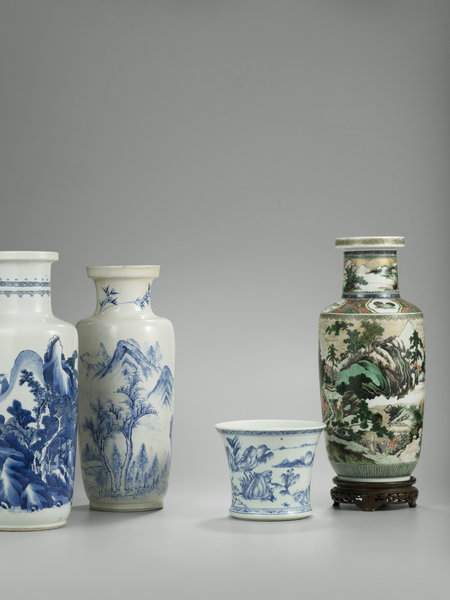 |
|
The blue and white porcelain pieces are among the exhibits at the ongoing show. [Photo provided to China Daily] |
During the 17th century, society experienced ups and downs due to the change of dynasties. So, scholar-officials and the literati turned their attention to artistic things, such as gardens, paintings and ceramics.
Customized porcelain was particularly popular then.
As an example, Leung points to a blue and white vase featuring a Chinese painting by master ink painter Mi Fu (1051-1107).
Mi's ink paintings were regarded as hard to copy even on paper and silk, let alone on ceramics, says Leung. So the vase must have been ordered by a rich scholar.
Why did the client choose Mi's painting?
The then Emperor Kangxi was fond of painter Dong Qichang, a master painter whose skills were influenced by his idol Mi Fu, says Leung.
"It was a kind of following of the emperor's tastes," he adds.
Wang Gang, an antique collector and an actor, has loaned some of his porcelain for the show. One is his favorite vases features a legend about a Taoist representative Qiu Chuji and Genghis Khan.